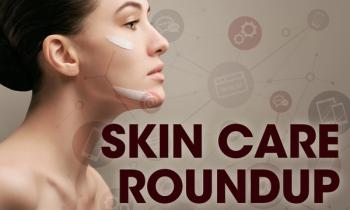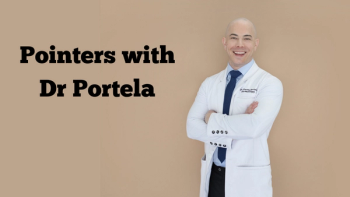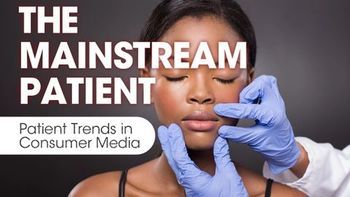
Hobbies have a host of benefits
While it’s important to love your work, it's also important to nurture passion and interests that lie outside of paid work.
Billionaire businessman and philanthropist Warren Buffet once said, “whatever you like to do, make it a hobby, and whatever the world likes to do, make it a business.”
While it’s important to love your work, this quote highlights the importance of nurturing passion and interests that lie outside of paid work.
Healthcare can be a trying ands stressful field, so we asked a few leading dermatologists to share what they love to do and lessons they’ve learned about the importance of hobbies.
Tina Alster, MD
Tina Alster, MD, director of the Washington Institute of Dermatologic Laser Surgery and clinical professor at Georgetown University says her favorite activities in her down time include traveling, hiking, and shopping. Fostering a love of design and architecture, Alster says she has also taken on several renovation projects over the years, adding that her son is now studying to be an architect himself.
Alster says her time spent on hobbies is important, not only for the fun and relaxation they provide.
“While my ‘day job’ is a full-time venture, it is gratifying to have outside interests that expand my horizons and permit me to spend quality time with my family and friends,” Alster says. “These hobbies are most important, not only because they are fun for me, but because they expand my knowledge base and provide me with different perspectives on the visual arts that better inform my ‘cosmetic eye’ for my aesthetic dermatology practice.”
Steven R. Feldman, MD, PhD
Steven R. Feldman, MD, PhD, of the Wake Forest School of Medicine, says he likes to use his spare time-“when I have any”-to making a difference.
“I have leveraged my experiences about conflicts in medicine to try to educate people and reduce the conflicts in the world that we are passing on to our children,” Feldman says.
The author of a book on passing judgement, “Compartments: How the Brightest, Best Trained, and Most Caring People Can Make Judgments That are Completely and Utterly Wrong,” Feldman says he gets personal satisfaction from learning new things and trying to make the world a better place.
“Academic dermatology is a blast and could be completely fulfilling. But I'm blessed with having additional interests that keep me pleasantly occupied constantly. Learning new things keeps me happy,” Feldman says. Still, it’s conflict and peace-making that engage him both inside and outside of the office.
“My interest in conflicts outside medicine parallels what I have seen within medicine. Over and over, I've seen people in one group in medicine have conflicts with people on another group. It could be doctors versus patients, specialists versus primary care, dermatologists versus surgeons, or physicians versus insurers. My group always tells me how good we are and how bad the folks in the other group are. But when I go and talk to those other folks, I always find them to be just as well-meaning and caring as people in my group are, and also as misguided about my group as my group was of theirs,” Feldman says. “Dermatology has given me-a nice, American, Jewish doctor-the opportunity to travel to Egypt, Kuwait, Saudi Arabia, Iran, and even to PLO headquarters in Palestine, and I've found the same principle applies, in spades.”
Feldman, who is also the administrator/curator of the Internet-based Jewish Museum of the Palestinian Experience and working on a novella, says he isn’t convinced that having a hobby is necessary, but thinks that medical professionals can use their experience to make a big difference in anything they choose to do.
“Clinical practice can, and perhaps should be, all consuming. It's never perfected. We could devote our entire lives to optimizing what we do-making other people's lives better-and we'd be very happy doing that,” Feldman says. “I don't know that other hobbies or interests are critically important. But when we have them, our medical base can give us the resources for exploring those hobbies and interests to our fullest.”
Ronald Wheeland, MD, FACP
Ronald Wheeland, MD, FACP, past president of the American Academy of Dermatology, says he for years spent his spare time woodworking and recently has taken up wood lathe work.
“I've always enjoyed working with my hands, hence the reason I'm a dermatologic and Mohs surgeon, and find this activity is relaxing and also a way to recreate something beautiful for others,” Wheeland says.
Like Feldman, Wheeland says the importance in less in the hobby itself, but more in doing something you love.
“I really don't think having a hobby is all important, but doing something is! I find my volunteer work with Habitat for Humanity and the local food bank is enjoyable and rewarding. The woodworking is enjoyable but also relaxing and keeps my mind occupied solving problems,” Wheeland says. “However, the volunteer work provides enjoyable interactions with other people and gives me a feeling that I'm helping other people who could really benefit from that work. The two activities together complement each other and keeps me active and happy.”
Doris Day, MD, MA
Doris Day, MD, MA, of Day Dermatology and Aesthetics in New York City, says she loves to spend her “off” time reading novels-mostly historical fiction and classics. She also enjoys listening to music, taking long walks, and photography.
“I'm a huge photography buff so I'm always looking for things that catch my eye to photograph and I work on composition and working with natural light to create photographs that are interesting and that tell a story without using filters or special cameras,” Day says.
She also enjoys cooking and trying to develop her own recipes using fresh and seasonal ingredients.
Newsletter
Like what you’re reading? Subscribe to Dermatology Times for weekly updates on therapies, innovations, and real-world practice tips.









